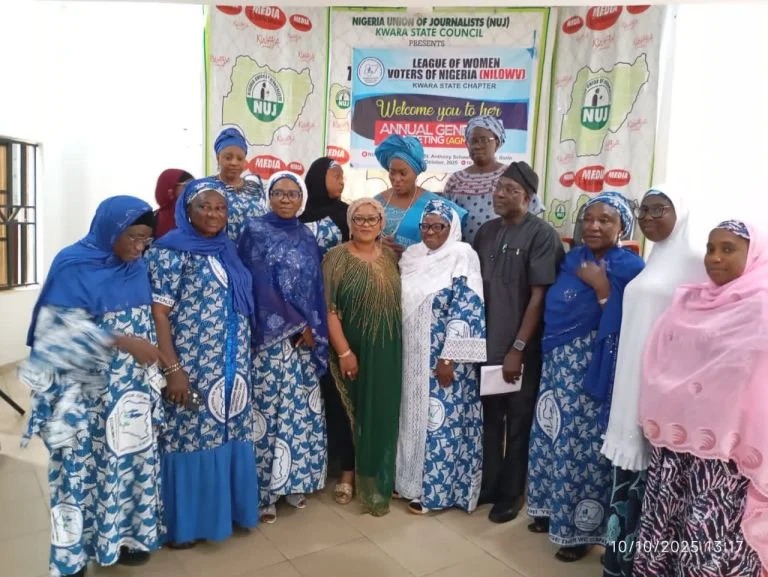In its bid to promote gender equality and inclusivity in governance and decision-making processes, the League of Women Voters (NILOWV) has called for full implementation of 35 percent affirmative action.
The Kwara State Chairperson of the group, Hajia Biliqis Oladimeji made the call on Tuesday in Ilorin while speaking during the 2025 Annual General Meeting (AGM) of NILOWV.
Oladimeji urged women to be visible and participate actively in political and electoral processes in Nigeria.
According to her, despite the population of Nigerian women and their participation in electoral processes, they are not given consideration in decision making.
She restated the association’s commitment to advocacy for the passage and implementation of the Reserved Seats for Women Bill which seeks to provide additional legislative seats for women at both the federal and state assemblies.
“Our chapter aligns with the national body and other women-focused organisations to push for greater representation of women in governance and legislative processes.
“Despite the challenges of insecurity in some remote areas, NILOWV Kwara remains committed to reaching more women through collaborations with local partners and stakeholders,” she said.
Also speaking, the Resident Electoral Commissioner (REC) in Kwara, Dr Hale Longpet, urged Nigerian women to continue to support one another in the struggle to achieve the 35 percent affirmative action.
He emphasised the need for women to dismantle all forms of stereotypes and gender bias that have long restricted their participation in politics and decision-making processes.
Longpet said that achieving gender balance in governance was not only a constitutional matter but also a democratic necessity for sustainable development.
Dr Christiana Oluwole, the Executive Director of Global Hope for Women and Children Foundation (GLOHWOC), expressed concern over persistent women’s underrepresentation in governance in Nigeria.
She said that women’s representation in the political space still stood below five per cent in spite decades of advocacy for gender balance.
“While women constitute nearly half of Nigeria’s population, their visibility in public leadership remains marginal, a trend that hinders the nation’s collective growth and development,” she said.
Oluwole observed that if women are not represented at the table where decisions are made, it means their perspectives are missing from the policies that shape our lives.
“We must continue to build our capacity, support one another, and demand our rightful place in governance,” she concluded.

